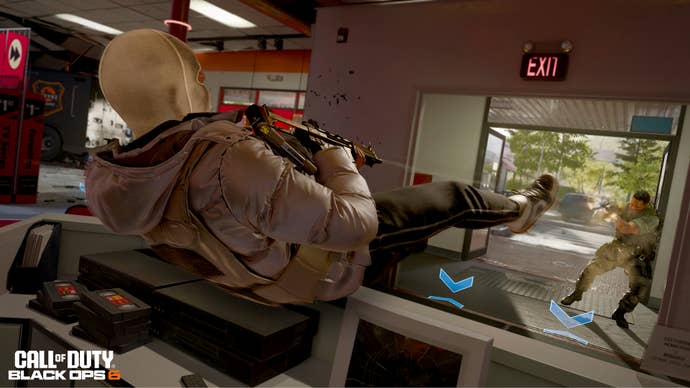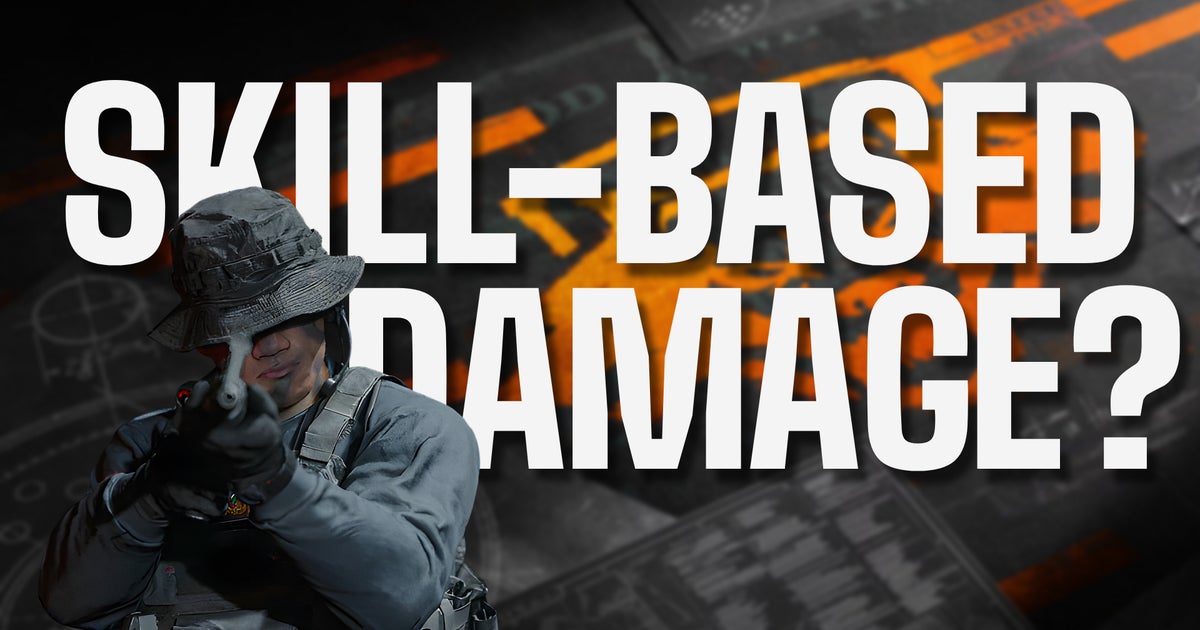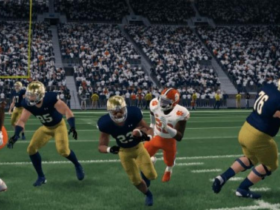If you have the misfortune of following Call of Duty as part of your job, you’ll know that every annual release is an exercise of Deja Vu: The Deja Vu. This goes for the games themselves as much as it does the community’s reception to them.
If it’s a Treyarch game, Nuketown is almost always the first post-launch map, whereas Shipment is the one that joins the roster shortly after the release of Sledgehammer/Infinity Ward games. Spawns are always broken – regardless of the developer. Connectivity issues in the first few days are always prominent, shoot-first-die-first etc. And, for the last five or so years, you can add skill-based matchmaking to that list of… grievances
It’s all very exhausting. Sometimes, however, it can be amusing to follow. Right now, we’re enjoying one of those episodes.
To see this content please enable targeting cookies. Manage cookie settings
SBMM, skill-based matchmaking – or as it later became known, engagement-based matchmaking – has been at the top of the list of complaints that the loudest, most online Call of Duty players have been screaming about. The idea is that the game assigns each player a hidden skill rating that’s very sensitive to recent performance. Using this data, the game then throws players in matches with other players of equal ratings, with much greater precision and consistency than the pre-Modern Warfare 2019 era.
I won’t get into the arguments for and against this system, because both sides have repeated them to death, but what’s new this year is that the algorithm has apparently evolved to have a much closer effect on player performance. SBMM has long been blamed for Call of Duty’s so-called ‘manipulative’ nature, where doing well in a couple of matches means your next couple will be miserable, and on and on the cycle goes.
Put simply, the skill-based damage theory posits that, just like the game’s matchmaking is able to use players’ skill ratings to create balanced matches, it’s also capable of using that same knowledge to… lower your damage – and sometimes the strength of your aim assist – in real-time!
Supposedly, when the game realises you’re doing too well in the match you were put in, it artificially tries to lower your impact on it by messing with your performance in ways you can feel, but not quite quantify.

The idea of Call of Duty even having the ability to do this started off as a joke – a sort-of sarcastic dare: ‘What else can they do, nerf my bullets?’ Since the release of Black Ops 6, however, it began gaining more and more traction amongst the community as a serious, viable thing that’s making players worse at the game.
More specifically, players have noticed wild inconsistencies in their connection quality, which affects how often they lag in the game and causes desync issues where bullets don’t deal the damage they’re supposed to, and so on. All of that despite having the same average ping to the servers they’re put in every match.
Just looking up the term ‘skill-based damage’ on YouTube, brings up a number of takes from dozens of CoD content creators, including the more analytical and data-driven ones. And sure, the more reasonable among them say there’s no evidence for it, it’s still a topic hot enough to be taken seriously.
On the Black Ops 6 subreddit, you’ll find many daily threads and comments discussing the same theory, with some suggesting that packet burst and other network issues are somehow only triggered when the player is doing too well. A few have even expanded the umbrella to cover movement speed, headshot multipliers and pretty much every other aspect of a player’s performance.
There’s obviously no hard evidence that any of that is real, but it’s especially amusing in the case of Black Ops 6 because the game’s scoreboard shows the damage dealt by each player. And, with the addition of Theater Mode, you can easily re-watch past matches and compare your performance against the data. If Treyarch really was ‘fixing’ things on the backend, you wouldn’t think it’d be so transparent, ey?

The one thing everyone keeps going back to is a Skylanders patent from 2017 that suggests that the game could modify the accuracy of a player in a match to remain within certain parameters, requiring the higher-skilled player to compensate harder to retain their accuracy. Nevermind the impracticality of actually making this work, the patent was designed for a different game, not Call of Duty. As much as those players might feel that Activision is evil incarnate, the company doesn’t employ wizards who can translate the mechanisms of such complex systems between games.
At some point, anyone shouting at clouds has to recognise that Call of Duty multiplayer may no longer be a game made for them. You’re getting older, buddy. And slower. Deal with it. I don’t think it’s for me, either – for entirely different reasons – but I get my joy from pointing from the sidelines to its unchanging nature and moving on.
Maybe it’s time some of the more vocal – and worse-performing! – players did the same thing.
function appendFacebookPixels() { if (window.facebookPixelsDone) return; !function(f,b,e,v,n,t,s) {if(f.fbq)return;n=f.fbq=function(){n.callMethod? n.callMethod.apply(n,arguments):n.queue.push(arguments)}; if(!f._fbq)f._fbq=n;n.push=n;n.loaded=!0;n.version='2.0'; n.queue=[];t=b.createElement(e);t.async=!0; t.src=v;s=b.getElementsByTagName(e)[0]; s.parentNode.insertBefore(t,s)}(window, document,'script', 'https://connect.facebook.net/en_US/fbevents.js');
fbq('init', '1749355691872662');
fbq('track', 'PageView'); window.facebookPixelsDone = true;
window.dispatchEvent(new Event('BrockmanFacebookPixelsEnabled')); }
window.addEventListener('BrockmanTargetingCookiesAllowed', appendFacebookPixels);
Source link












Leave a Reply